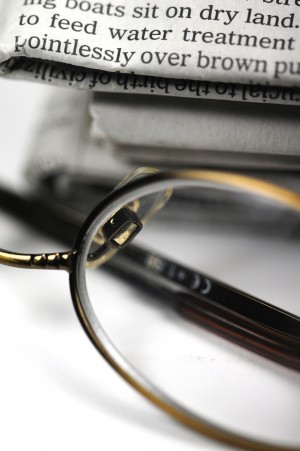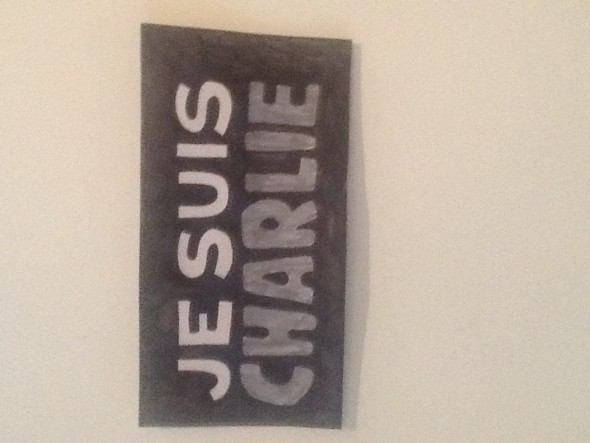Beyond Hebdo. The aftermath of the shooting rampage at the offices of Charlie Hebdo has brought to the fore issues of free speech and responsibility, drawing a sharp distinction between journalism and satire. Journalists should not shy away from their role in tragedy.
20 March 2015
17,021 views
No Comment
UK journalists were portrayed as ‘traitors’ by a Charlie Hebdo contributor after most UK newspapers, broadcasters and other news outlets opted not to show the cover with a cartoon of the prophet Mohamed. This brings to the fore the question of whether or not free speech is absolute.
The world was recently taken by storm when 12 people were killed in the gun attack at the offices of French satirical magazine Charlie Hebdo. Four of the magazine’s cartoonists, its editor, and two police officers, were among the victims in the shootings.
Charlie Hebdo contributor Caroline Fourest in her Sky News appearance following the attack said she was “Very, very sad” about this state of affairs, explaining how journalists in Britain had “Betrayed what journalism is about’’.
The Bridge Magazine is best known for its constructive international journalism. Its editorials always approach stories from a more investigative and solutions-oriented angle.
In such a volatile age, is it time to question the role of satire, the extent of its responsibility and self-regulatory remits?
Journalism versus Satire
Journalists are taught to both seek out news but also to recognise otherwise unpromising events for their eventual newsworthiness.
Journalism is the activity or profession of writing for newspapers or magazines or of broadcasting news on radio or television.
According to Bill Kovach and Tom Rosenstiel in The Elements of Journalism…
‘the purpose of journalism is to provide citizens with the information they need to make the best possible decisions about their lives, their communities, their societies, and their governments.’
Meanwhile, satire is defined by the online dictionary as ‘a genre of literature, and sometimes graphic and performing arts, in which vices, follies, abuses, and shortcomings are held up to ridicule, ideally with the intent of shaming individuals, corporations, government or society itself, into improvement.’
Good journalism differs from satire in many respects. Good journalism has many boundaries, while satire has very few. Good journalism, ostensibly, practices proportionality or accepted codes of ethical behaviour regarding professional practice.
On the other hand, satire would appear to ignore them. Good journalism is supposed to appeal to reason and a balanced judgement, but satire, by its nature, appeals more to mockery.
The First Amendment protects extreme, unpopular and dangerous forms of expression. However the right to free expression is not absolute. It comes with responsibilities, and consequently the reaction after a publication.
Journalists cannot shy away from their role in tragedy
Nelson Poynter, creator of the Poynter Institute and former owner of the St. Petersburg Times once emphasised a huge difference between journalism and satire.
He explained why he would not hire an editorial cartoonist: “the editorial writer would work hard to craft an argument to make a subtle point. Behind that writer was the cartoonist, wielding a hammer.”

Journalism versus Satire. Good journalism has many boundaries, while satire has very few. The Bridge MAG. Image
What journalism and satire have in common is that they can both inform or expose an issue, a dictatorship or a misuse of power…
Articles 4 and 8 of the IFJ Code of Conduct are very specific about this:
“
4
Suivez les liens ci-dessous pour lire la suite :
1)
https://www.lulu.com/en/gb/shop/rachel-tcheungna/crimes-réels-et-prévention-de-lactualité-mondiale-intemporelle-the-bridge-magazine-book-des-nouvelles-brûlantes-britanniques-aux-exclusivités-mondiales-qui-ne-se-fanent-jamais/paperback/product-j85zzr.html?page=1&pageSize=4
2)
https://www.lulu.com/en/gb/shop/rachel-tcheungna/de-l-actualité-mondiale-intemporelle-the-bridge-magazine-book-des-nouvelles-brûlantes-britanniques-aux-exclusivités-mondiales-qui-ne-se-fanent-jamais/paperback/product-gz2n65.html?page=1&pageSize=4
Rachel Tcheungna : Auteure,
Ecrivaine de The Bridge Books et
Editrice de The Bridge Magazine


